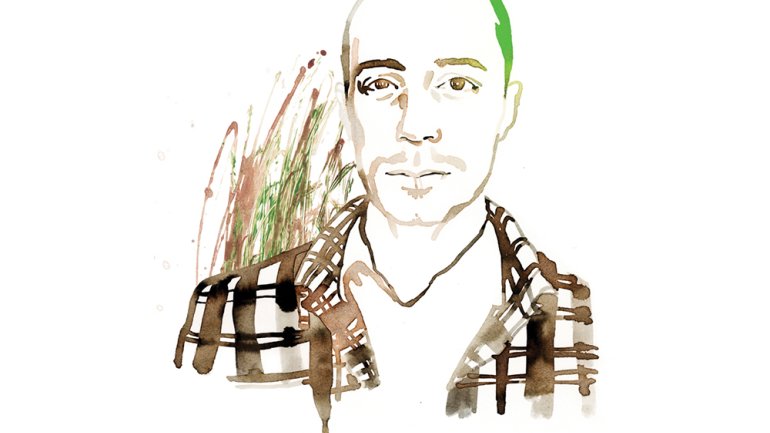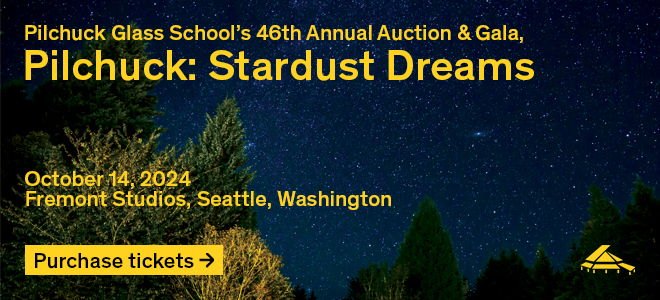The Power of Paper
The Power of Paper
In 2004, Iraq war veteran Drew Cameron took a papermaking workshop at the Community College of Vermont in Burlington. Fresh from active duty, he was desperately searching; “I boozed a lot; I was super-aggravated and anxious,” he recalls. “I felt like I had to get the hell out of somewhere, but I didn’t know where that was.” Papermaking turned out to be his salvation.
Since that time it has be-come the salvation of thousands of other veterans seeking to understand and reconcile their military experiences. In 2007, Cameron founded the Combat Paper Project – with Drew Matott, the teacher in that Vermont papermaking class. In Combat Paper workshops, veterans, others connected to the military, and members of the community cut up uniforms and make paper out of them, which often becomes the basis of artwork and journals of poetry and essays. Over several days, while they make paper, workshop participants may tell their stories, beginning to process their time in uniform.
Today Combat Paper has four affiliates – in San Francisco, Nevada, New Jersey, and New York state. Almost every week there’s a Combat Paper workshop somewhere; they’ve happened in 29 states and six countries. Veterans from virtually every conflict since World War II have taken part. Combat Paper artwork is in 32 public collections.We asked Cameron to describe the impact of the project, on him and on others.
In 2007, at Drew Matott’s suggestion, you pulped your own uniform; that experience be-came the impetus for Combat Paper. What was it like to de-construct and then transform your uniform?
The act of taking a uniform that has all of these encoded exper- iences in the material – what happened, how do we relate to it, physical geography, and so on – and transforming it into paper is profound.
The word that comes first to mind is “empowering.” I immediately felt as though I had a voice, that I had a story, that my story was somehow relevant. I had complete agency; I was the one writing that history.
Was the experience profound in part because, in the military, individual identity is suppressed and you sort of lose your own voice?
Finding my individual voice again was part of it. But it’s not like you can find yourself again. The person you were before the military doesn’t exist anymore. There’s a very thorough re-socialization process that happens when you join the military. A lot of people who join are at that age of amazing emotional growth, 18 to 22. Throw into the mix warfare, conflict, brutal and traumatic experiences, and you are coming out the other side of it with a whole other set of experiences. The challenge is finding a sense of self, a sense of purpose. How do I now fit into my new life? I’m out of the military, I’m released from that duty, that requirement – what now? How do I find a sense of something bigger than me? I found it not with a rifle, but with making, with a craft, with creating something.
What has been the response of veterans to the program?
The schedule – how many workshops we have had – is an indication. Response has been resounding, more than I could ever imagine. It’s been very humbling and inspiring. People really identify with this work.
Why do you often include non-veterans in the workshops?
From the outset the workshops have been veterans and the community. A lot of people have a military connection. The majority of people in this country do. This is a heavily militarized country that has engaged in consistent warfare for generations. And I would say if you’re a taxpayer you have a military connection.
You’ve said some vets honor their uniforms in converting them to paper, while others are motivated more by anger and regret. Is there ever arguing about war during the workshops?
I wouldn’t say argument; I would say dialogue. In the papermaking workshops, I am not requiring people to take a stand. Does making paper out of uniforms bring up political discussions? Does it bring up cynicism? Does it bring up anger? Yes, but it’s not politicized.
You’re talking about people who’ve been socialized in the military culture, so a lot of us understand the subtleties and complexities. It just gets more murky. And that’s a good thing. War is a spectrum of experiences; it’s complicated. The narrative shouldn’t be very simple.




